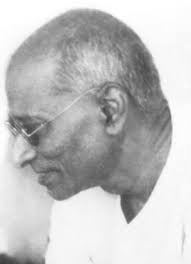


The beginning of second Millennium BCE witnessed the decline of civilizations in West Asia.
.jpg)
Further the researchers said that the skeletal remains found in the upper part of the citadel area of Mohenjo Daro belonged to those who died due to floods and not massacred by the Aryans as hypothesized by Mortimer Wheeler.(Pune Mirror,Sept.7,2019). The Harappa However, with publication recent research paper with DNA results on Rakhigari in CELL Journal (September 2019).There were many many theories about the genetic origin of Harappans, linking them to Southeast Asian hunter-gatherers, the Neolithic Iranian farmers and even the Steppe pastoralists. As in Egypt and Mesopotamia, this development was coincided with densification of settlements along the rivers. This site is dated as old as the sites in Beluchistan plateau which were once considered as the oldest in the Sub-continent.

The earliest recognizable Harappan site is Bhirrana in Haryana, on the banks of the dried up Sarasavati-Ghaggar. The Harappan civilization went through three phases of its growth and decline. It is known that by 3200 BCE, there emerged a large number of Harappan settlements on both the Sarasvati and Indus basins and at about the same time that Egypt was being unified. Chakravarti was elected President of the Ancient India section by the Indian History Congress, 2011 (Patiala Session).In the recent researches on Ancient India, we find the establishment of first urban settlements in the Sub-continent was from about c.3200 to 2600 BCE, which has been termed as Harappan civilization. He was the Fellow in Residence at the Netherlands Institute for Advanced Study. Chakravarti is the recipient of Commonwealth Fellowship, Fulbright Fellowship, Membership of the Institute for Advanced Study, Princeton. AD 1300 (Primus, New Delhi, 2016-revised and enlarged edition). Besides contributing regularly to peer reviewd journal and edited volumes, Chakravarti has authored and/or edited A Sourcebook of Indian Civilization ( Orient Longman, Hyderabad, 2000-one of the Associate Editors)Trade in Early India (OUP, New Delhi 2005, paperback edition), Trade and Traders in Early Indian Society (Manohar, New Delhi, 2007, second edition), Indo-Judaic Studies in the Twenty First Century, a View from the Margins (Palgrave MacMillan, New York, 2007-one of the Editors) and Exploring Early India up to c. Ranabir Chakravarti, Professor of Ancient History, Centre for Historical Studies, Jawaharlal Nehru University, New Delhi, specializes in the economic and social historyof early India with a particular interest in the history of maritime trade in the Indian Ocean (prior to c. 1500 CE)”.Ĭentre for Historical Studies, Jawaharlal Nehru University, New Delhi Ranabir Chakravarti will address a special introductory lecture on “ Early Knowledge of the Indian Ocean (till c.


 0 kommentar(er)
0 kommentar(er)
